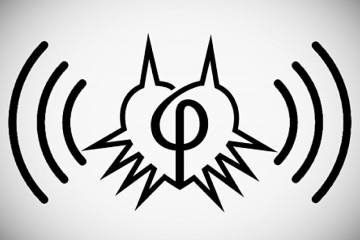The following is an episode of With a Terrible Fate’s weekly podcast discussing video-game storytelling from all angles. Find all episodes here.
A new challenger joins the market for hybrid handheld gaming: Valve‘s Steam Deck. This week, we discuss whether the Steam Deck may change where and how the stories PC games will be experienced—and what lessons the Switch can teach us to guide our thinking.
Later, we contemplate recent rumors revolving around Netflix’s supposed plans to stream video games, and a copy of Super Mario 64 that is more valuable than most homes.
- Main Story
- 00:07:11 What to expect from Steam Deck
- “The most gaming power you have ever held,” Valve
- “Valve’s gaming handheld is called the Steam Deck and it’s shipping in December,” Jay Peters, Chaim Gartenberg, Richard Lawler, and Sean Hollister
- “Three Core Ways the Nintendo Switch Will Make New Stories Possible,” Aaron Suduiko
- “Console Analysis: What a portable Termina means for Majora’s Mask,” (Aaron Suduiko)
- “Breath of the Wild: The Hero Who Never Was,” Aaron Suduiko
- 00:07:11 What to expect from Steam Deck
- Side Quests
- 00:58:22 “Netflix To Offer Video Games on Its Streaming Platform,” Mark Gurman
- Netflix job announcement: Director of Product Innovation, Interactive, Netflix
- Data mining tweet, Steve Moser
- 01:11:39 “It’s-a Me, a $1.56 Million Copy of Super Mario 64!”, Aaron Mak
- 00:58:22 “Netflix To Offer Video Games on Its Streaming Platform,” Mark Gurman
Continue Listening
- Podcast navigation: < EarthBound’s Flavor Text | Into the Mindscape >




1 Comment
Paul · July 19, 2021 at 8:01 am
Regarding video games as collectibles:
Here’s the thing that intrigues me about these extreme video game collectibles (video games that have never been opened): I think you cannot even say this copy of Super Mario 64 is a video game. It has somehow completed its transformation into a pure collectible. What was sold was not the video game “Super Mario 64” but the idea of owning a perfect untouched copy of it, very much like an NFT is not an art work but the idea of owning it. And the funny thing is after being sold for over 1 million dollars, this copy of SM64 has now ultimately seized its original purpose. One could of course open the box and play the game but then it stops being the collectible it was before and the value deminishes.
Of course I don’t really know what the buyer wants to do with this copy. I’m somehow at the point where I think, they are viewing it as a financial investment in something they care about (but a financial investment nonetheless). But the buyer might very well be some billionaire who wants to experience the joy of opening sealed copy SM64 again (are you screaming inside at the thought of opening the packaging?) and then give it a play on their newly opened N64.
Also regarding this topic I stumbled across a website the other day, where you can buy shares in graded copies of video games:
https://www.withotis.com/drop/super-mario-bros-4
Now I cannot say how successful this model actually is. But I guess it’s fair to say that in this case the video games traded are really no more than objects of financial speculation. If you buy you don’t even have to show anything for yourself. You just buy the idea of owning 12% of a well conditioned copy of a game that you will never see or touch or – god forbid – play.